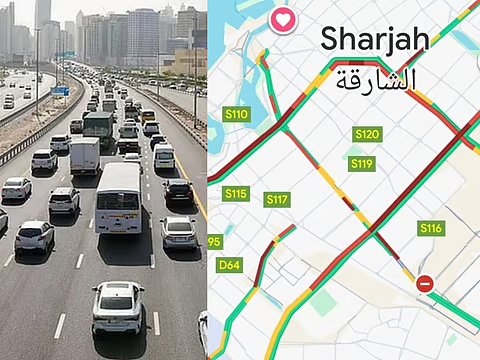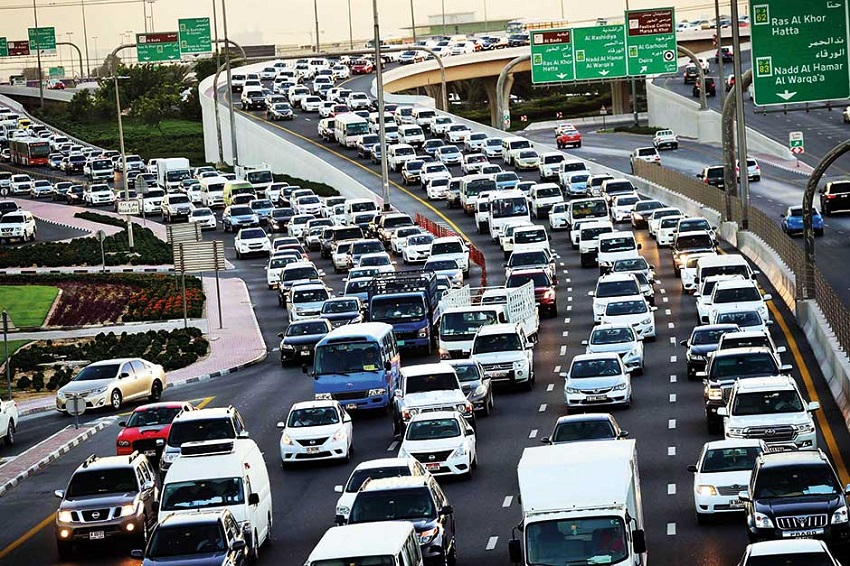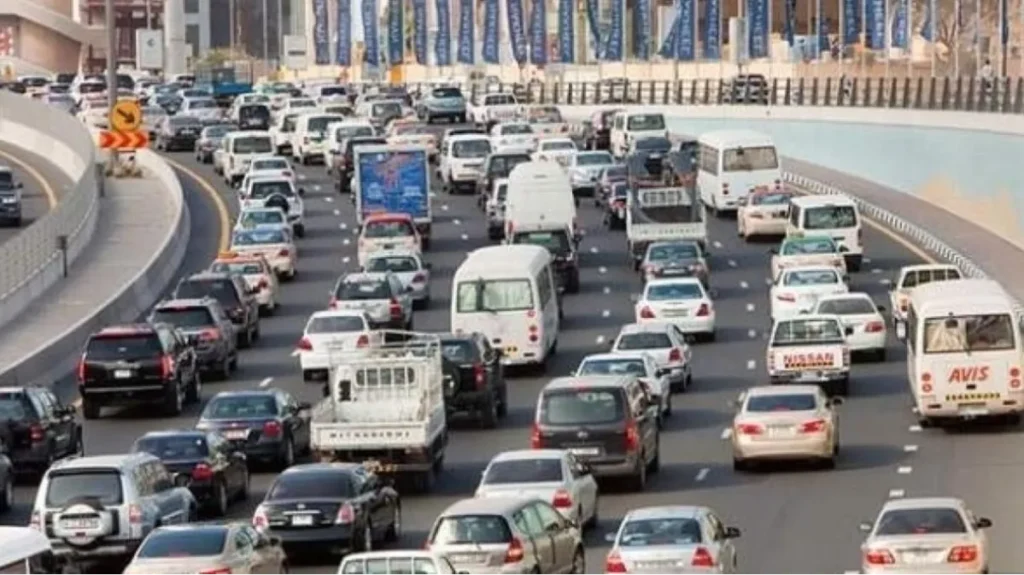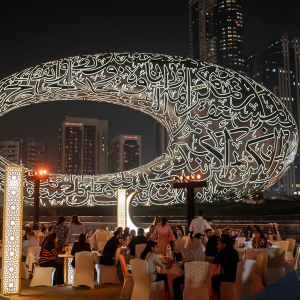Dubai Sharjah morning traffic delays are causing major disruptions for daily commuters, with thousands of drivers facing hours-long congestion during the morning rush. Key routes, including Sheikh Mohammed bin Zayed Street, Bu Shaghara, Al Majaz, and the areas around Sahara Centre, are particularly affected. Drivers are advised to plan ahead, consider alternative routes, and allow extra time for their journeys.
Extent of the Traffic Problem
Traffic congestion between Dubai and Sharjah has become a recurring challenge. Studies indicate that nearly 90% of drivers commuting between the two cities experience daily delays. In Dubai, over 90% of motorists reported traffic jams during peak hours, while Sharjah commuters face similar difficulties.
Morning traffic is particularly problematic, with many drivers spending more than two hours commuting. On average, this amounts to approximately 460 hours annually, which is equivalent to nearly 60 working days lost to traffic congestion.

Factors Contributing to Traffic Delays
Several factors contribute to the ongoing traffic issues between Dubai and Sharjah. Understanding these causes is crucial for commuters and authorities alike.

High Vehicle Volume
Every weekday morning, more than 100,000 vehicles travel from Sharjah to Dubai. The reliance on private vehicles is high, as more than 80% of trips in the UAE are made by car. This high vehicle volume puts significant pressure on existing road networks, resulting in bottlenecks during peak hours.

Limited Public Transportation
Although recent improvements, such as the introduction of the E308 bus route, provide commuters with alternatives, public transportation usage remains low. Most commuters still rely on private vehicles, leading to overcrowded roads and heavy traffic congestion.
Infrastructure Constraints
Rapid urban expansion and population growth have outpaced the development of transportation infrastructure. Existing roads often struggle to accommodate the increasing number of vehicles. Limited alternative routes and intersections further exacerbate congestion, particularly during the morning and evening rush hours.
Accidents and Roadwork
Traffic accidents and ongoing road maintenance contribute to further delays. Even minor incidents can create long backups, affecting thousands of commuters. For example, accidents on Sheikh Mohammed bin Zayed Street have caused extended traffic jams, with drivers being urged to take alternate routes.
Impact on Daily Commuters
The morning traffic delays between Dubai and Sharjah have several consequences for commuters:
- Time Loss: Drivers spend significant amounts of time in traffic, often over two hours each morning. This reduces productivity and limits personal time.
- Physical and Mental Stress: Long commutes lead to fatigue, anxiety, and higher stress levels. The repeated strain can affect overall health and well-being.
- Altered Daily Routines: Many commuters adjust their schedules to avoid the worst congestion. Some leave home extremely early, while others may wait in cafes or other locations until traffic conditions improve.
Coping Strategies for Commuters
To manage the daily challenges of heavy traffic, commuters have adopted several strategies:
- Flexible Work Hours: Some employers offer flexible working schedules, allowing employees to start and finish work outside peak traffic hours. This reduces time spent in congestion.
- Alternative Routes: Drivers are increasingly using navigation apps to find less congested roads. While not always convenient, alternative routes can save valuable commuting time.
- Public Transportation: The E308 bus route provides a viable alternative for those who want to avoid driving. However, its capacity is limited, and private cars still dominate road use.
- Carpooling: Sharing rides with colleagues or friends reduces the number of vehicles on the road and can help ease traffic congestion.
Long-Term Solutions
Addressing Dubai–Sharjah traffic delays requires coordinated efforts between government authorities, urban planners, and commuters. Experts suggest several long-term strategies:
- Expansion of Public Transportation: Investing in buses, metro extensions, and other public transport options can reduce dependence on private vehicles. A well-connected network would encourage commuters to leave their cars at home.
- Promotion of Carpooling: Incentivizing shared rides and establishing carpool lanes can reduce vehicle numbers and improve traffic flow.
- Traffic Management Systems: Advanced traffic management systems, including smart signals and monitoring, can optimize road use and reduce bottlenecks.
- Infrastructure Development: Expanding existing roads, adding additional lanes, and constructing new routes can accommodate increasing traffic volumes. Well-planned road networks prevent the overcrowding of key arteries.
- Congestion Pricing: Implementing road pricing during peak hours can encourage commuters to travel at different times or use alternative transport options.
Community Awareness and Behavior

Apart from infrastructure improvements, public awareness plays an important role in managing traffic. Commuters should plan trips in advance, avoid risky driving behaviors, and be patient during heavy traffic periods. Collaboration between authorities and citizens is essential to reduce delays and improve commuting experiences.
Conclusion
Severe morning traffic delays between Dubai and Sharjah have become a major concern for daily commuters. With thousands of drivers experiencing hours of congestion, the impact on time, health, and overall quality of life is significant. While individual coping strategies, such as flexible work hours and alternative routes, provide temporary relief, comprehensive solutions are needed. Expanding public transportation, developing road infrastructure, encouraging carpooling, and managing traffic effectively are essential steps.
Ultimately, addressing traffic congestion requires a coordinated effort between government authorities, urban planners, and the community. Only through long-term planning and proactive measures can commuters look forward to a smoother, less stressful journey between Dubai and Sharjah.
Do follow UAE Stories on Instagram
Read Next – Unlock Your Dream Career: Top Work From Home Jobs In Dubai












